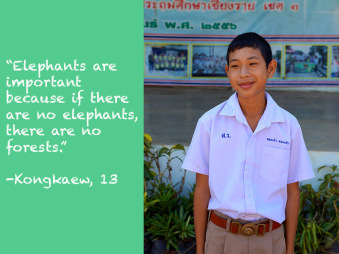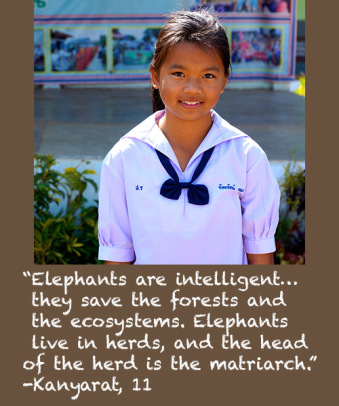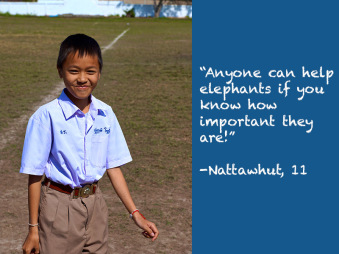
Thinking Like An Elephant In The Classroom
In order to affect change in the world we have to affect change in the human mindset. And the most direct way to do this is through education. Therefore, in addition to our research, TEI is firmly committed to education. Our educational programs bring conservation, biology, and scientific research directly into classrooms. Since students relate to animals such as elephants, we use elephants as a gateway species to initially spark a student’s interest in science and then foster that interest. We motivate students to learn about the ecosystem we are intrinsically a part of, and encourage them to think critically about conservation issues. Our curriculum has been successfully piloted in schools in Thailand as well as the United States, with the goal to be implemented in schools throughout Southeast Asia and beyond. The intelligent and empathetic elephant that we study is the key to changing and inspiring young minds, and to creating a future generation of informed consumers, politicians, and conservationists alike.
A Curriculum For Success
Our curriculum currently span ten lessons and covers five core topics. This extended program, compared to single-day programs, allow students to delve deeper into elephant related conservation, and to learn concepts that will stick with them for a lifetime. Our five core topics include:
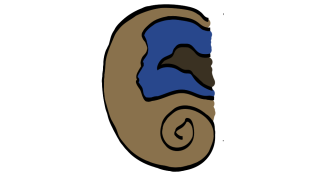
Animal Behavior
An animal’s daily life including their habits and actions.

Elephant Biology
Facts and figures about what makes an elephant unique.

Conservation Biology
Preserving the globe for both humans and nature.
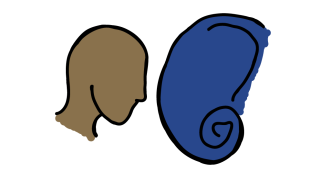
Human-Elephant Conflict
Finding solutions for elephant-human problems.

Research Methods and Design
Using an analytical approach to answer questions.
Skype With An Elephant
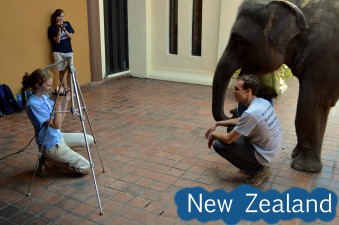


To reach students far beyond the borders of Thailand, we bring live elephants virtually into classrooms. Using Skype, we have enabled students in countries such as Australia, New Zealand, and the United States, to make a real-time connection with an endangered species. It is one thing to see a photo or video clip of an elephant, but it is a rare and unique opportunity to be able to ask an elephant researcher about their work while they show you the impressive trunk of the elephant standing beside them. This personal interaction between a student, a scientist, and a wild animal, impacts students and impassions them to care about science and conservation.



How Do We Know It Works?
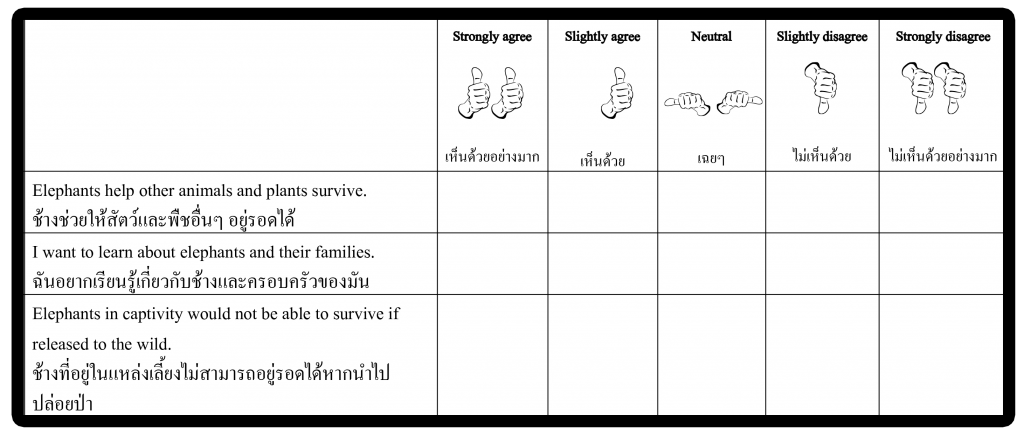
As scientists, we want proof that our education curriculum is engaging, informative, and most of all, effective. Therefore, we analyze data from every program we run to see what changes can be made to improve our educational efforts. In addition to student evaluations and teacher feedback of every lesson, we also conduct pre- and post- student surveys focused on the knowledge and beliefs of our students. These surveys include questions ranked on a Likert scale (strongly agree to strongly disagree), as well as several short answer questions. And though our current pilot is still in progress, the results from our initial single-class pilot in Bangkok were encouraging. We hope to demonstrate that participation in this program can not only increase their knowledge of the material, but that participation can begin to shift their beliefs about and motivations toward conservation matters.
Programs We Have Completed
Click on the red pins to learn more about the programs we have completed.
Looking At A Bright Future
As we continue on with our education initiatives we see a bright future before us. In urban areas there is a need for general environmental awareness and exposure to scientific thinking, and in rural areas our main focus is on addressing applied topics like reducing human-elephant conflict. Our long-term goal is to be able to provide this curriculum free of charge to every school in Thailand and throughout Asia, as well as schools in the United States and around the world.
